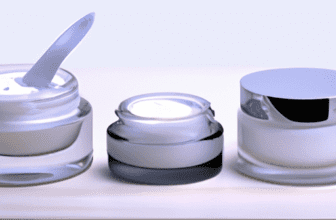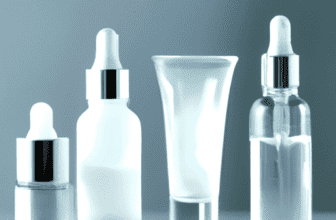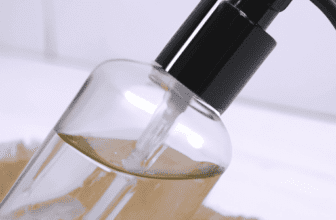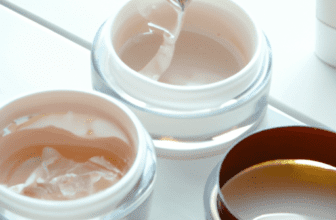Acne Cosmetica: Understanding and Managing Acne Caused by Cosmetics
Understanding Acne Cosmetica
It’s known as acne cosmetica – when pimples and comedones form due to the usage of certain cosmetic products. The occlusive nature of these products clogs pores and causes excess sebum production (oily skin). This is especially common amongst women who apply lots of cosmetics often.
To overcome this, you must recognize the products that trigger it. Ingredients like lanolin, cocoa butter and wheat germ oil can lead to blockages. Avoid these if you have sensitive skin. To manage, start with a regular cleansing routine and avoid heavy layers of makeup.
Switch to non-comedogenic products to reduce the chances of developing acne cosmetica. These are designed not to clog pores whilst still providing coverage. Pay attention to expiry dates to prevent the buildup of bacteria.
Natural skincare products are becoming more and more popular as they don’t affect pore-clogging as much.
Check labels when purchasing cosmetics, as those with breakouts or pre-existing skin conditions should be extra careful about what they put on their skin. Good hygiene practices combined with the right cosmetic options will help keep acne breakouts away.
Types of Cosmetics that can cause Acne Cosmetica
Various beauty products can cause Acne Cosmetica, a kind of acne that’s caused by long-term use of cosmetics on skin. These could include makeup, skincare items, hair care, and fragrances. For example, heavy foundations and powders can block pores and cause breakouts. Similarly, skincare with oils and comedogenic ingredients like petrolatum can also lead to Acne Cosmetica. Plus, hair care products such as conditioners or gels with oil-based ingredients can cause it along the hairline and forehead.
It’s worth remembering that not all cosmetics affect everyone in the same way. Some people may get breakouts from one product while others may be okay using it. It’s important to identify which product causes your acne breakouts.
Many young women start wearing makeup when they’re teenagers. However, overusing or misusing certain cosmetics can cause Acne Cosmetica. Finding the cause of your breakouts is like playing Clue – only, instead of Colonel Mustard with a candlestick, it’s your foundation with pore-clogging ingredients.
Identifying the Triggers
Acne Cosmetica is a struggle. To manage it effectively, you must understand its source. Identifying triggers in cosmetics that cause breakouts can reduce irritation and promote clearer skin. But, triggers vary from person to person.
Common causes include oils, fragrances, and synthetic additives like silicones. Even products labeled “non-comedogenic” may still have pore-clogging ingredients. Read product labels thoroughly and patch test new products.
To minimize outbreaks of Acne Cosmetica, avoid thick creams or makeup. Keep skin clean and exfoliate regularly. Use non-comedogenic and oil-free products.
Pro Tip: Don’t be scared to ask a dermatologist for advice. They can suggest personalized skincare routines and products tailored to acne-prone skin.
Prevention and Management of Acne Cosmetica
Preventing and managing acne cosmetica requires understanding the causes and key factors that trigger an outbreak. Keep an eye out for fragrances and occlusive agents in beauty products that can clog pores. To reduce flare-ups, maintain good hygiene and avoid too much makeup.
To effectively manage acne cosmetica, determine skin type and use non-comedogenic products that have been dermatologically tested. Exfoliate skin regularly to remove dead cells that can block pores. To minimize inflammation, avoid extended sun exposure.
Remember, improper use of cosmetics, such as using others’ applicators or not washing brushes, can contribute to acne cosmetica. Sanitizing beauty tools helps reduce this risk.
By following these prevention and management tactics, you can enjoy clear skin without sacrificing beauty routines and necessary cosmetic use. Start protecting your skin today!
Choosing the Right Products
For Acne Cosmetica, it’s key to pick the right products that won’t make the condition worse. To decide which ones fit, you must consider factors such as skin type, sensitivity and the ingredients in the product. Refer to the table for extra help when choosing products that are suitable.
It’s also important to do patch-tests before using any new items. Test on a small area of the face or body and wait to see how your skin reacts.
To avoid irritation, go for non-comedogenic and oil-free formulations that won’t block pores. Furthermore, make sure to clean your makeup brushes and sponges regularly to avoid bacteria buildup.
Liz had Acne Cosmetica struggles for years until she found out her foundation was the cause of her breakouts. After switching to a non-comedogenic brand with no pore-clogging ingredients, her acne lessened dramatically. Now Liz always researches product ingredients before buying and tests all new items first.
Remember: the only time ‘basic’ and ‘skin care’ should be together is when you’re talking about washing your face with water.
Basic Guide to Skin Care
Achieving great skin requires effort and dedication. Understand your skin type and choose the right product. Avoid harsh chemicals and use sunscreen to protect from sun damage. Cleanse and exfoliate your face twice a day. Drink plenty of water and eat a balanced diet full of fruits and vegetables.
Also, use a moisturizer and limit exposure to pollution. Avoid touching your face and get enough sleep. Pay attention to the products you use and beware of comedogenic ingredients which can clog pores.
Throughout time, people have sought youthful-looking skin with remedies like lead-based cosmetics. Now, there are safe skincare options that can be tailored to individual needs. When it comes to dermatologist consultation, ‘skin in the game‘ means something different.
Consultation with a Dermatologist
Managing acne caused by cosmetics needs advice from a skin specialist, such as a dermatologist. They can help find the cause of your skin issue, create a treatment plan, and give guidance on suitable products. Consulting with a dermatologist is key because some cosmetic acne symptoms can look like other serious skin conditions.
Tests like patch tests or biopsies can show what ingredients cause your acne. Avoiding ingredients like fragrances, silicones, or dyes in makeup/skincare might help. Treatments like chemical peels, extraction facials, or injections are sometimes prescribed with lifestyle changes.
Marketing like “non-comedogenic” or “oil-free” doesn’t mean some products don’t contain pore-clogging ingredients. The American Academy of Dermatology (AAD) suggests OTC spot treatments for mild-moderate cases but not overusing them – it can damage your skin’s pH balance and natural barrier.
Dr Dendy Engelman, MD, FACMS (a board-certified dermatologic surgeon) says: “Exfoliating too much using harsh scrubs or acids to get rid of comedones only inflames the area more” which leads to breakouts. So, it’s best to get expert advice before trying any new skincare regimen.
Use of Medication
Many people use meds to treat acne cosmetica. Creams, gels, and lotions containing salicylic acid, benzoyl peroxide, or retinoids can help. But, use with caution! Overuse may cause dryness and irritation, making acne worse.
A dermatologist can prescribe oral meds like antibiotics or hormone therapy for severe acne cosmetica. These should be taken under medical supervision and after evaluation of the patient’s health.
To avoid needing meds, choose cosmetics wisely. Pick non-comedogenic products that won’t clog pores. Read labels and avoid mineral oil, lanolin, and fragrances.
Pro Tip: Consult a dermatologist before starting any med or cosmetic routine for best results without damaging skin.
Lifestyle Changes
Identifying Habits That Contribute to Acne Cosmetica
Minimize acne cosmetica by identifying skincare routines and makeup products that cause breakouts. Switch to non-comedogenic products, wash makeup brushes often, don’t over-apply foundation and limit heavy creams or oils.
Be mindful of environmental factors that may cause acne – like touching your face often or wearing tight-fitting clothing. These simple lifestyle changes can reduce acne cosmetica.
Everyone’s skin reacts differently. Experimentation may be needed to determine what works best for your skin type. Making sustainable changes can lead to clear, healthy skin in the long run.
Take Control with Mindful Choices
Take proactive steps towards healthier skin. Making small changes today could make a difference tomorrow. Incorporate these tips into your daily routine for positive results! Say goodbye to chemical-laden creams and hello to natural remedies for Acne Cosmetica.
Natural Remedies for Acne Cosmetica
Curing Acne Caused by Cosmetics:
To get rid of pimples caused by cosmetics, try these natural solutions:
- Take off your makeup before bed.
- Use Non-Comedogenic products.
- Try Tea Tree Oil or Salicylic Acid products.
- Go for natural facial masks and scrubs.
- Maintain good hygiene: wash your face twice daily.
Plus, living a healthy lifestyle is super important to keep your skin healthy.
Pro Tip: If these remedies don’t work, it’s best to see a dermatologist since the issue could be something else.
Frequently Asked Questions
1. What is acne cosmetica?
Acne cosmetica is a condition caused by the use of cosmetics and skincare products that clog pores and cause acne breakouts.
2. How do I know if my acne is caused by cosmetics?
If you notice that your acne breakouts appear in areas where you apply your cosmetics or skincare products, it is likely that it is caused by your cosmetics.
3. What types of cosmetics can cause acne cosmetica?
Oil-based foundations, primers, moisturizers, and hair products are common culprits of acne cosmetica.
4. How can I prevent acne cosmetica?
To prevent acne cosmetica, opt for non-comedogenic and oil-free cosmetics. Also, ensure that you cleanse your face thoroughly before and after applying any cosmetic product.
5. How can I treat acne cosmetica?
The best treatment for acne cosmetica is to stop using the cosmetic product that is causing the breakout. Additionally, gentle exfoliation and the use of non-comedogenic skincare products can help clear up acne.
6. Can I still wear makeup if I have acne cosmetica?
Yes, but you should opt for non-comedogenic and oil-free makeup products. Additionally, ensure that you cleanse your face thoroughly before and after applying any makeup product.





